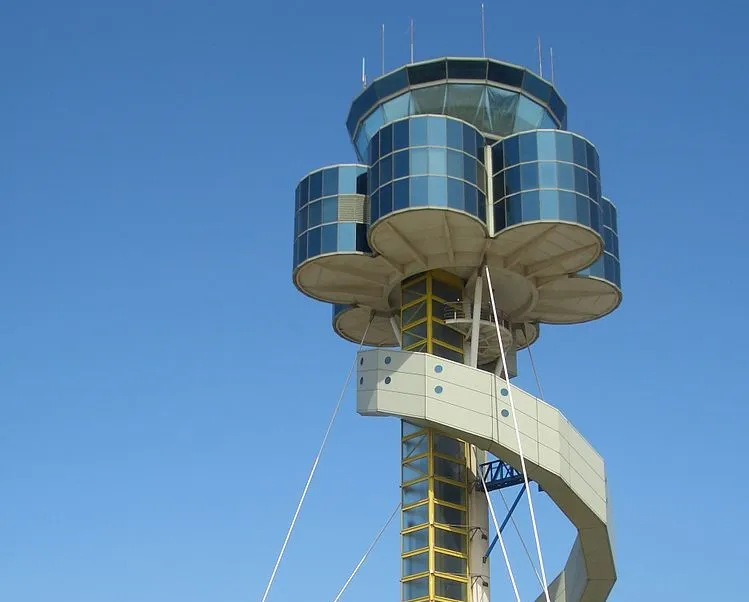
Praise and damnation for air traffic control providers
Jun 19, 2019

Air traffic control providers play a crucial role in ensuring the safety and efficiency of air travel. Their expertise and quick decision-making are often praised for preventing accidents and managing complex airspace. However, they face criticism for occasional delays and miscommunications that can lead to frustration among airlines and passengers. The balance of praise and damnation reflects the high-stakes nature of their work, where even minor errors can have significant consequences. Ultimately, their performance can greatly influence the overall travel experience, highlighting the importance of continuous training and technological advancements in the field.
Air traffic control (ATC) providers play a crucial role in maintaining the safety and efficiency of the aviation industry. With the increasing number of flights worldwide, the performance of these providers has come under both praise and scrutiny. This article will explore the aspects of air traffic control that have garnered acclaim and criticism, while highlighting key terms related to referrerAdCreative.
The Importance of Air Traffic Control Providers
Air traffic control is essential for ensuring the safe movement of aircraft in the skies. ATC providers are responsible for managing air traffic in controlled airspace, guiding pilots during takeoff, landing, and in-flight navigation. Their ability to handle complex situations effectively is vital for preventing accidents and ensuring a smooth travel experience for passengers. With advancements in technology, ATC providers have improved their systems, leading to increased safety and efficiency.
Praise for Air Traffic Control Providers
Several aspects of air traffic control have received commendation over the years:
- Safety Record: The primary function of ATC providers is to ensure safety. Many have maintained exemplary safety records, significantly reducing the risk of mid-air collisions and ground accidents.
- Technological Advancements: The integration of modern technology, such as satellite-based navigation systems and automated tools, has improved the accuracy and effectiveness of air traffic management. These advancements have streamlined operations and made air travel more efficient.
- Efficiency in Operations: ATC providers have optimized flight paths and reduced delays through better management of airspace. This has led to shorter flight times, fuel savings, and lower emissions, making air travel more environmentally friendly.
- Training and Expertise: Professional training and continuous education for air traffic controllers ensure that they are equipped to handle the challenges of modern aviation. Their expertise is vital for quick decision-making in high-pressure situations.
Criticism of Air Traffic Control Providers
Despite the numerous praises, air traffic control providers have also faced criticism:
- Infrastructure Challenges: Many ATC providers operate with outdated infrastructure that can hinder their operational efficiency. The need for modernization is pressing, as older systems may not support the increasing volume of air traffic.
- Staffing Shortages: In several regions, staffing shortages have become a significant issue, leading to increased workloads for existing controllers. This can result in burnout and errors, ultimately affecting safety.
- Response to Emergencies: There have been instances where ATC providers were criticized for their response to emergencies. Delays in communication or suboptimal decisions during crises can have severe consequences.
- Transparency and Accountability: Some ATC providers have been criticized for a lack of transparency regarding their operations and decision-making processes. This can lead to public distrust and concerns about accountability.
Impact on Airlines and Passengers
The performance of air traffic control providers has a ripple effect on airlines and passengers:
| Category | Praise | Criticism |
|---|---|---|
| Airlines | Improved operational efficiency leads to lower costs. | Delays caused by ATC can result in operational disruptions. |
| Passengers | Increased safety and fewer accidents enhance passenger confidence. | Long wait times and delays can lead to frustration and dissatisfaction. |
Future of Air Traffic Control Providers
Looking ahead, the future of air traffic control providers hinges on several key developments:
- Investment in Technology: Continued investment in next-generation technologies, such as artificial intelligence and machine learning, will play a significant role in enhancing the capabilities of ATC providers.
- Collaboration: Greater collaboration between international ATC providers can lead to standardized practices and improved safety across borders.
- Focus on Sustainability: As environmental concerns grow, ATC providers will need to adopt sustainable practices that minimize the ecological impact of air travel.
- Enhanced Training Programs: Ongoing training and recruitment initiatives will be essential to address staffing shortages and maintain high standards in air traffic control.
Conclusion
In summary, air traffic control providers are indispensable to the aviation industry, ensuring safety and efficiency in air travel. While they receive praise for their safety records and technological advancements, they also face significant challenges that must be addressed. As the industry evolves, ATC providers must adapt to new technologies and operational demands to continue fulfilling their critical role. The balance between referrerAdCreative and operational efficiency will be vital in shaping the future landscape of air traffic control.
Related Articles

Explore Thailand: The Best Islands to Visit for Paradise, Adventure, and Relaxation

The Ultimate Guide to the Best Islands in Thailand for Your Next Getaway

Do babies need passports? How to get a passport for a newborn

How to get a U.S. passport fast: here’s how to expedite the process

What is Mobile Passport Control: 5 reasons why you should use it

SENTRI vs. Global Entry: A detailed guide

Do you need a passport to go to the Bahamas? Let’s find out

Do you need a passport to go to Mexico? A detailed guide

Do you need a passport to go to Canada? We got the answer

Do You Need a Passport for a Cruise: An Essential Travel Guide

Booster Seat Requirements: All the Rules to Follow in Your Rental Car

What Are the World’s Most Powerful Passports, and How Does Yours Rank?

How to Take a Passport Photo at Home: A Helpful Guide

You've got to have heart! Southwest's new livery

Your opinion: Should water be free on low cost carriers?

Young women bolder than guys as solo travellers
